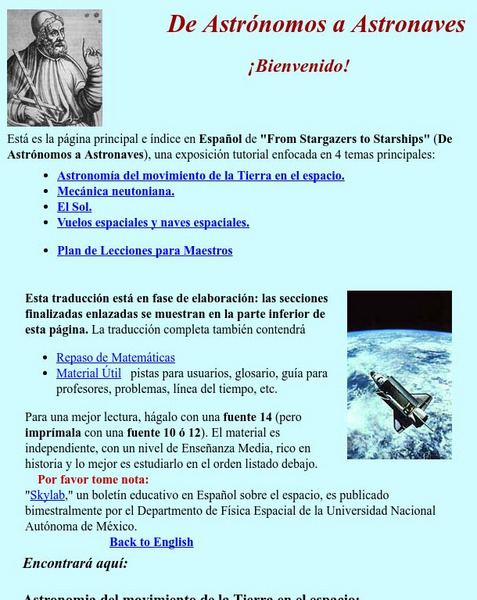Hi, what do you want to do?
TeachEngineering
Teach Engineering: Solar System!
An introduction to our solar system: the planets, our Sun and our Moon. Students begin by learning the history and engineering of space travel. They make simple rockets to acquire a basic understanding Newton's third law of motion. They...
Utah Education Network
Uen: Trb 3:1: Investigation 4: Day and Night
A lesson for third graders in which they learn about the rotation of the Earth on its axis and how this movement creates day and night. They also examine the orbit of the moon about the Earth and the Earth's orbit around the sun.
Ducksters
Ducksters: Earth Science for Kids: Ocean Tides
Did you know the rising and falling of the sea level is caused by the gravity of the Moon and the Sun? Kids learn about ocean tides including tidal currents and types of tides on this site.
Science Education Resource Center at Carleton College
Serc: Exploration of Shadows: Earth, Moon, Sun System: Moon Phases Eclipses
A guided inquiry where students participate in the simulation of moon phases and eclipses.
TED Talks
Ted: Ted Ed: A Rare, Spectacular Total Eclipse of the Sun
Andy Cohen details the extraordinary celestial phenomenon of a total solar eclipse, and when it will next occur. [3:47]
Better Lesson
Better Lesson: Our Sky
What objects are in the day sky and the night sky? How do they seem to move? Come and explore with us as we discover the sun, moon, planets and stars! This detailed lesson plan includes pictures and videos of the instructional activity...
Better Lesson
Better Lesson: Our Stars
In this lesson, learners will observe and communicate how the stars are in the sky both day and night. The extremely detailed lesson includes photos and videos of the lesson in actions, examples of student's work, materials, parent...
Sophia Learning
Sophia: The Sun and Moon: Lesson 3
This lesson will analyze the role of the sun and moon relative to the earth's orbit. It is 3 of 4 in the series titled "The Sun and Moon."
Sophia Learning
Sophia: The Sun and Moon: Lesson 4
This lesson will analyze the role of the sun and moon relative to the earth's orbit. It is 4 of 4 in the series titled "The Sun and Moon."
TeachEngineering
Teach Engineering: Lunar Lollipops
The students work in teams of two to discover the relative positions of the Earth, Sun and Moon that produce the different phases of the Moon. The students will be given a Styrofoam ball that they will attach to a pencil so that it looks...
Merriam-Webster
Merriam Webster: Dictionary Illustration: Solar Eclipse
Basic diagram of a solar eclipse illustrates the relative positions of the sun, moon, and earth.
Illustrative Mathematics
Illustrative Mathematics: G Mg Solar Eclipse
In this task, students investigate why total solar eclipses are rare. They will learn that, in addition to requiring the positioning of the Sun, Moon, and Earth, the Moon can only completely block out the Sun when it is closest to the...
Ministerio de Educación (Spain)
Observaciones Y Modelos en Astronomia
How does the length of the day change? How does the height of the sun change? Do we always see the same star? The answer to these questions and different observations about the sun, the moon and the stars that we can do from earth can be...
Nine Planets
The Nine Planets: An Overview of the Solar System
A detailed overview of the history, mythology, and current scientific knowledge of each of the planets and moons in the solar system.
Ministerio de Educación (Spain)
Ministerio De Educacion: Astronomia Visible
This site has maps of the nearest stars and constellations. Earth and star daily rotation, proper motion of the stars and many other topics about the solar system are also shown.Read phonetically
Other
Ellinogermaniki Agogi: Eratosthenes Experiment
A profile of the ancient Greek mathematician, geographer, and astronomer, Eratosthenes. Looks at his many accomplishments, including measuring the circumference of the Earth and the distance to the Moon and the Sun. Includes links to...
Annenberg Foundation
Annenberg Learner: Teachers' Lab: A Private Universe
This section is dedicated to educators to become expert instructors on topics like: distance between Earth, the Sun, and the moon, the phases of the moon, and reason for the seasons. Site includes information about how to address...
Nine Planets
The Eight Planets: Just for Kids
Here is a clear, simple picture of the solar system. Click on the names of the planets to learn more about each. Clicking on underlined terms takes you to more and more detailed scientific information.
Enchanted Learning
Enchanted Learning: Earth's Oceans Tides
This site explains what tides are and the difference between Proxigean Spring Tides, spring tides, and neap tides, and how these are formed. Graphic illustrations are provided.
Exploratorium
Exploratorium: Third From the Sun
This site offers a short history of the evolution of the space program and man's quest for more revealing and detailed pictures of the earth.
Text Project
Text Project: Fyi for Kids: The Tides [Pdf]
This FYI for Kids (Volume 5, Issue 3) focuses on the tides. It explains the pull on the earth by the sun and moon and how the tides go in and out.
Other
Phy6: De Astronomos a Astronaves
This site contains four main categories: Astronomy of the Earth's motion in space, Newtonian mechanics, the sun and spaceflight and spacecraft.
PBS
Pbs Learning Media: Our Solar System Lithograph Set
View these amazing high-quality images of our solar system from NASA with this lithograph set. Each lithograph contains images, facts, dates, and general information on a particular subject. Background information and teaching tips are...
NASA
Nasa Space Science Data Archive: Ice on Europa
With the exception of Earth, Europa currently appears to be the only body in the solar system which potentially harbors a global ocean of liquid water. The possibility of liquid water raises the possibility of life, as well. This NASA...
Other popular searches
- Earth Sun and Moon
- Earth, Sun and Moon
- Sun, Earth and Moon
- Moon Earth and Sun Rotations
- Moon, Sun and Earth
- Earth, Sun, and Moon





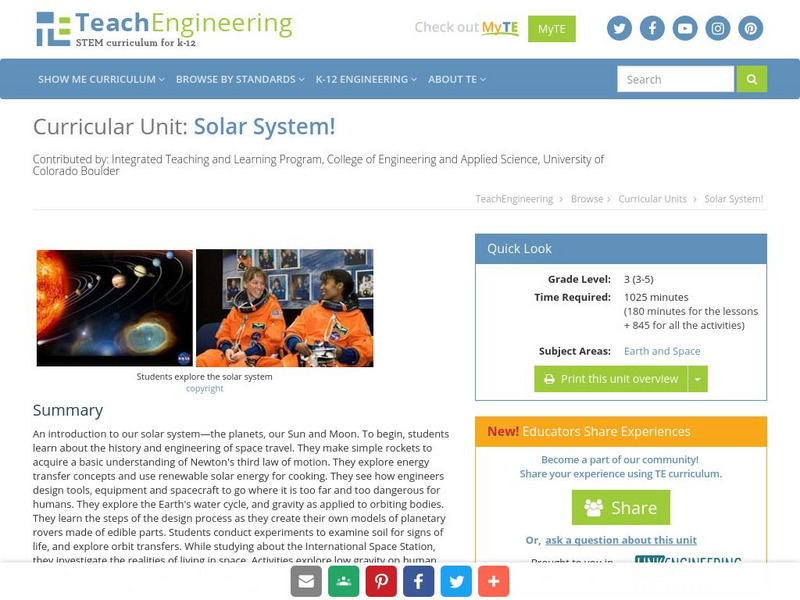
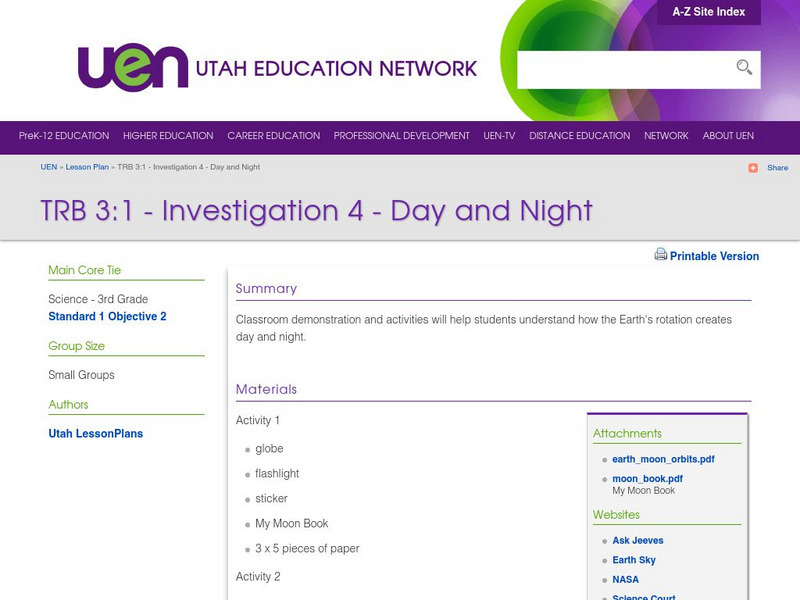

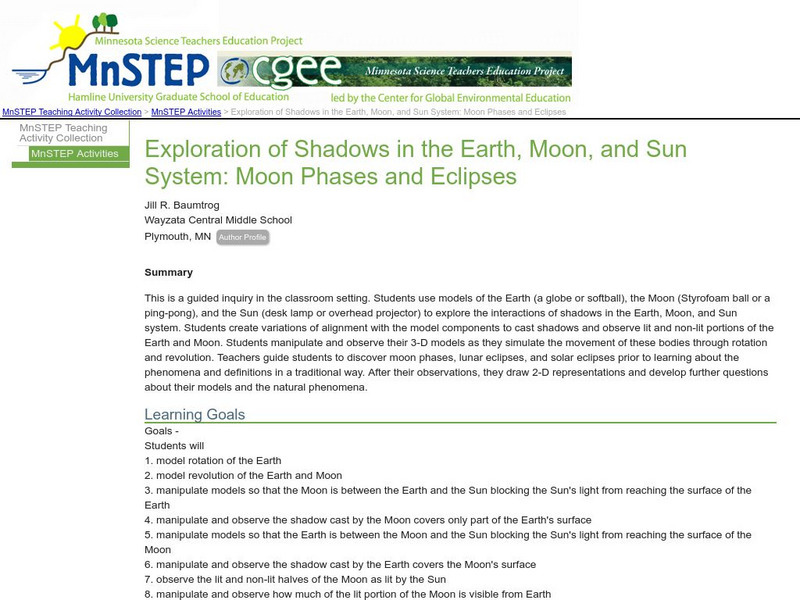



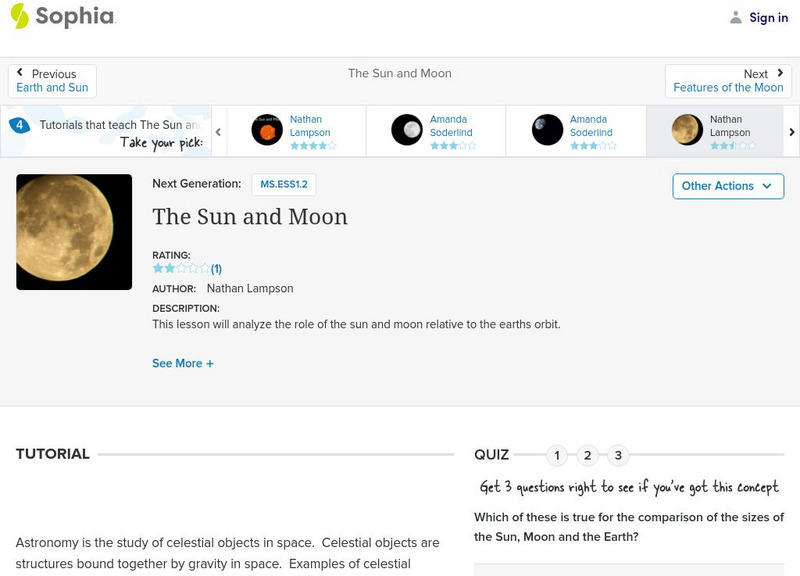



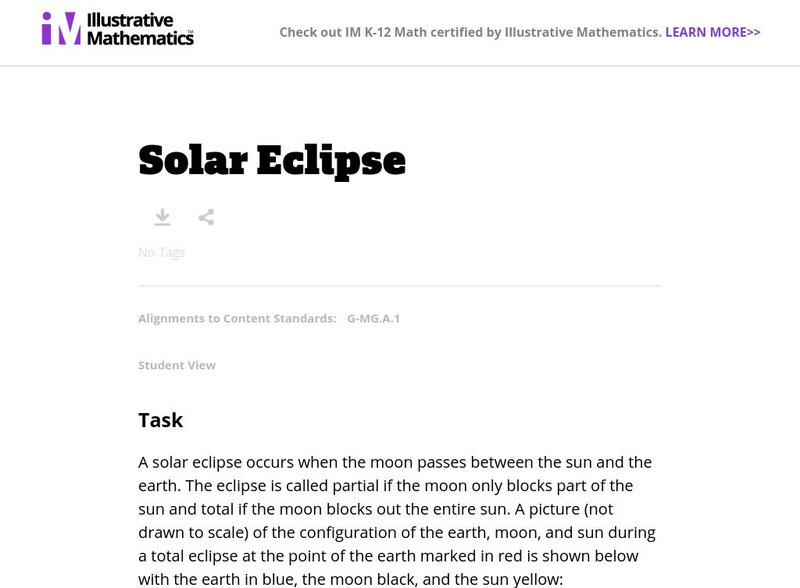

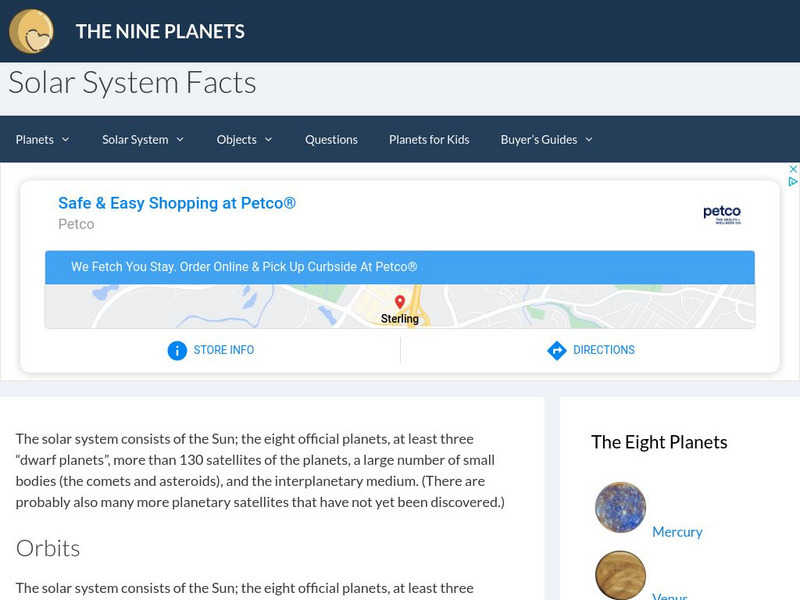
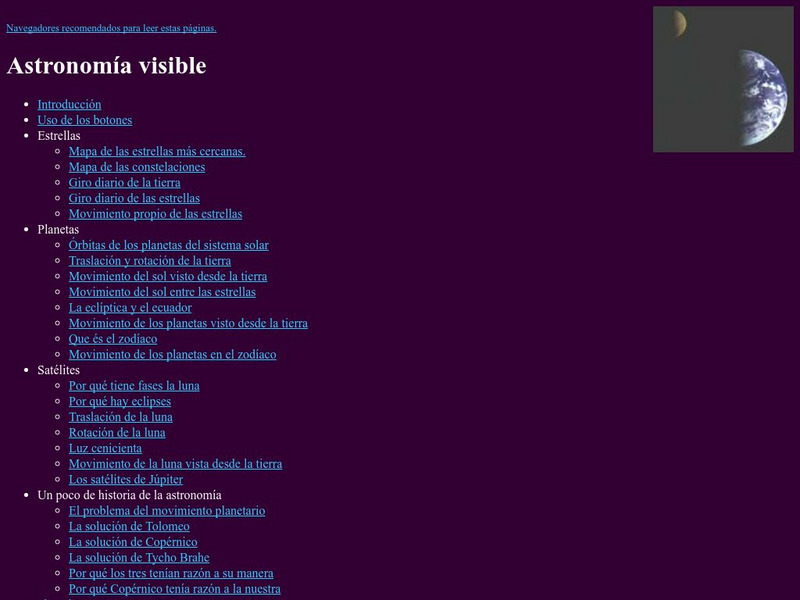





![Text Project: Fyi for Kids: The Tides [Pdf] Article Text Project: Fyi for Kids: The Tides [Pdf] Article](https://static.lp.lexp.cloud/images/attachment_defaults/resource/large/FPO-knovation.png)
